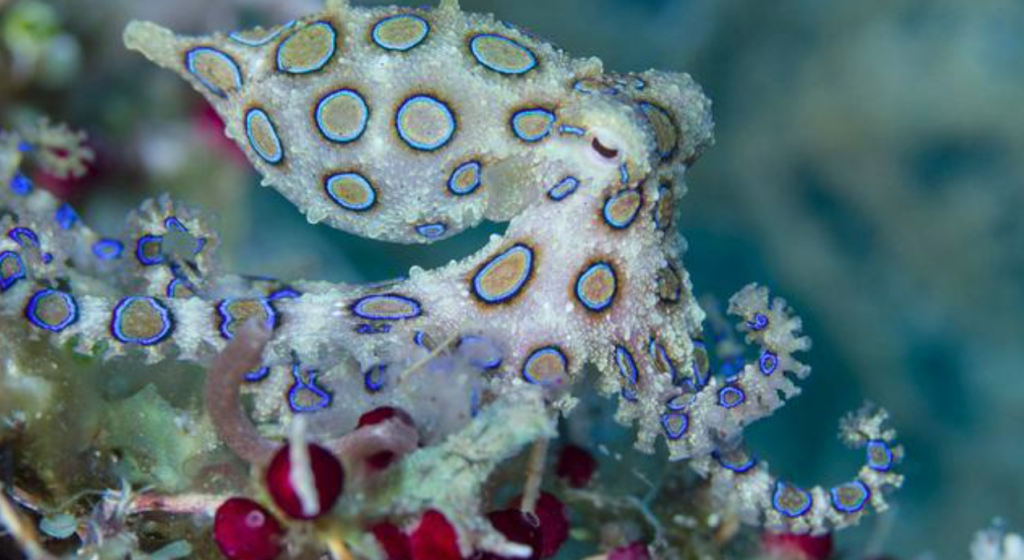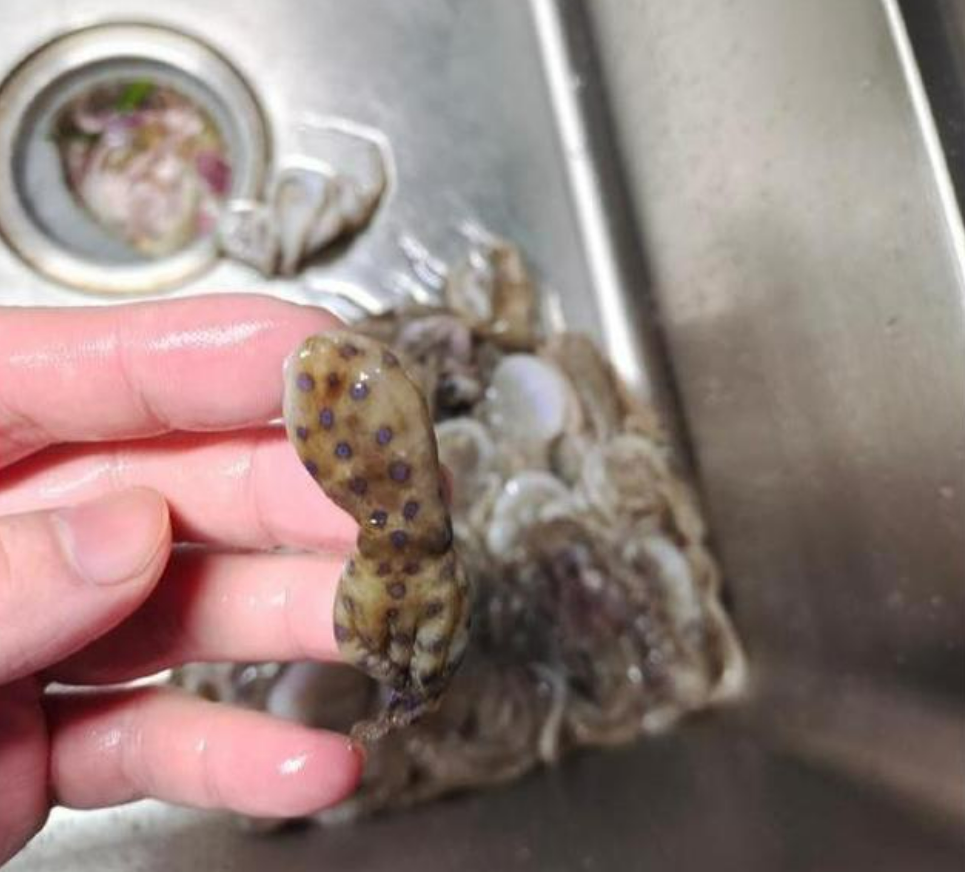The toxicity of the blue-ringed octopus is 50 times stronger than that of a cobra! One blue-ringed octopus can kill 26 people, so why is it still served at the dinner table?
In many incidents in China, poisonous seafood has been found mixed into food, and the culprit has been the blue-ringed octopus, which is known as one of the “most poisonous animals” with a venom 50 times stronger than a cobra’s. However, this deadly creature is still being kept as a pet, which is quite alarming.

Why is the blue-ringed octopus so terrifying, and how poisonous is its venom?
How poisonous is the blue-ringed octopus?
Here are a few numbers that can help answer this question: The venom of the blue-ringed octopus is a type of tetrodotoxin, which is 50 times more toxic than a cobra’s venom and over 850 times more toxic than potassium cyanide. One bite can cause death.

The venom in just one adult blue-ringed octopus can kill 26 adult humans within minutes. Only 0.5 milligrams of the venom entering the body can cause muscle paralysis, respiratory and cardiac failure, and death.

Both consumption and being stung can cause poisoning!
Now let’s take a closer look at the blue-ringed octopus:
It is a small octopus, about the size of a golf ball, with tentacles only 15 cm long. It is named after the blue circular patterns on its body, which can change color. The color is usually dull, but it becomes bright and blue when it feels threatened.

The blue-ringed octopus is mainly found in the Pacific Ocean between Japan and Australia, usually living near the coast. It doesn’t usually attack humans, but if it is caught or accidentally stepped on while playing in the water, it may sting.
But ultimately, what makes the blue-ringed octopus most frightening and deadly is that there is currently no antidote for its venom. That means if you are bitten and the treatment is not timely enough, you may die.
Furthermore, the venom of this creature has some characteristics that make it dangerous to humans whether it’s dead or alive, or even cooked. The venom can prevent blood clotting and cause excessive bleeding at the wound. The main neurotoxin in the venom is tetrodotoxin, which, once in the body, spreads quickly and destroys the nervous system, causing muscle paralysis and ultimately respiratory failure and death.
Similarly, the pufferfish is also highly toxic.

Because the toxicity of the pufferfish toxin is stable, neither heating nor salting can break it down, which is why even cooked blue-ringed octopus still retains its toxicity.
Speaking of pufferfish toxin, it naturally reminds people of another seafood that humans consume: the pufferfish. Some may wonder, since both are highly toxic animals with pufferfish toxin, why can people eat pufferfish?


This is actually because the pufferfish toxin mainly accumulates in the ovaries and liver, with only a small amount found in other tissues and organs. Its muscles do not contain toxins, and only after death, the toxins in the viscera may leak into the muscles.
In January 2023, a netizen posted pictures online claiming to have found a blue-ringed octopus in the seafood baby octopus they ordered at a hot pot restaurant. They asked for help identifying the creature and it was confirmed that the animal was indeed a blue-ringed octopus. The dish was immediately removed from the menu, and no one ate it.

A few days later, another netizen reported finding a blue-ringed octopus in a package of frozen baby octopus they purchased at a supermarket in Shenzhen. Fortunately, they did not eat it and threw it away due to concerns about its edibility.

Apart from being mistakenly served as edible octopus, blue-ringed octopuses are also kept as pets. Although it may sound unbelievable, their colorful and cute appearance has made them popular among many people. As early as five or six years ago, live blue-ringed octopuses could be purchased on e-commerce platforms.

A pet blogger on a video-sharing platform once bought a blue-ringed octopus for rearing. However, in the videos they shared, the octopus escaped seven times. On one occasion, when the blogger put their hand into the water to feed the octopus, it swam quickly toward the blogger’s hand, almost biting them. The blue-ringed octopus has a very sharp beak and can easily injure or even kill people with its venomous bite. Keeping them as pets poses a significant safety hazard.

Despite being a highly venomous animal that is not native to Chinese waters, blue-ringed octopuses are frequently associated with “dining tables” and “pets” and are commonly seen in public. If one were to ingest a significant amount of the venom, or if no rescue is given within a few minutes, death from heart failure or asphyxia is likely.

Why do such venomous animals appear frequently around us? Although the blue-ringed octopus’s primary habitat is not in Chinese waters, it is possible that some individuals are swept into Chinese waters by ocean currents and then caught by Chinese fishermen before being sold in the market. This situation highlights possible errors in the screening process for food products by fishermen, food industry practitioners, and regulators.

Furthermore, as an “exotic pet,” the blue-ringed octopus has become increasingly popular in recent years due to its attractive appearance. The demand for these animals has increased, but there are no relevant laws and regulations on the buying and selling of such venomous animals in China. Therefore, the import and sale of live blue-ringed octopuses may occur, making it possible for them to appear in our aquariums.


Given the risks associated with encounters with blue-ringed octopuses, how can we prevent poisoning? To avoid being bitten by a blue-ringed octopus, it is recommended to wear gloves when handling them, and do not put your hands in the aquarium. If you accidentally ingest blue-ringed octopus, seek medical attention immediately.

